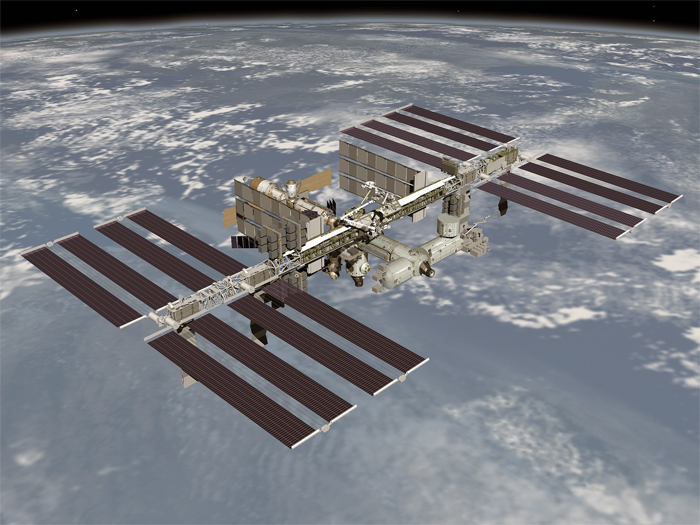Russia Extends Space Cooperation With U.S. Until 2030

(Article text ©2021 RFE/RL, Inc., Radio Free Europe/Radio Liberty – rferl.org – April 3, 2021 – article text also appeared at rferl.org/a/russia-extends-space-cooperation-with-america-until-2030/31185293.html)
Russia’s government has extended a space cooperation agreement with the United States until 2030, one of the few remaining partnerships between Moscow and Washington amid spiraling relations.
Russian Prime Minister Mikhail Mishustin approved and signed the extension on April 3, the government said in a statement.
The original cooperation agreement, signed in 1992 and extended four times previously, laid the groundwork for wide-ranging, space-related projects and research between NASA and Roskosmos, the two countries’ space agencies.
That has included joint work on the International Space Station, and Russia’s ferrying of astronauts and supplies and equipment to and from the orbiting station. Following the U.S. decision to ground its space-shuttle fleet, Russia’s Soyuz and Progress spacecraft became the sole means of transport to get to the station.
That has changed recently as private space companies including SpaceX have neared gaining NASA approval to fly people to the station, a move that will deprive Roskosmos of much-needed revenues.
Bilateral cooperation has continued even as the United States imposed sanctions on Russia for its annexation of Ukraine’s Crimean Peninsula, and other punitive measures.
The U.S. Commerce Department last month said it was tightening sanctions on some exports to Russia, but was partially excluding certain items such as those related to aviation and space.
The orbiting station, meanwhile, is approaching the end of its predicted lifespan, having flown about 400 kilometers above the Earth for more than 20 years.
In recent years, the station has been hit with leaks and depressurization concerns.
Roskosmos recently announced an agreement with China to explore building a joint lunar base. And NASA is gearing up for more missions aimed at exploring Mars.
